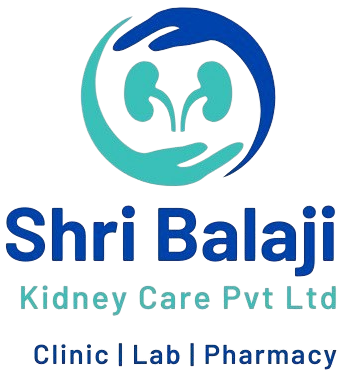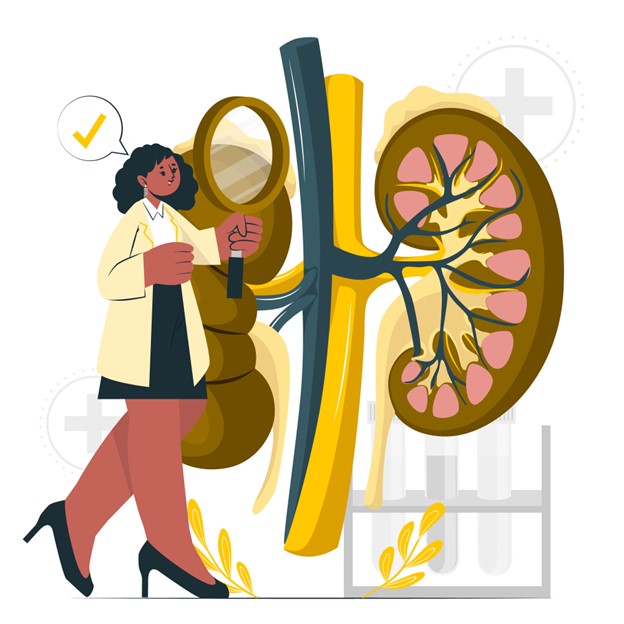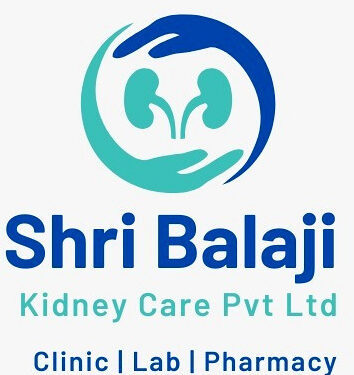Polycystic Kidney Disease (PKD) is increasingly becoming a topic of concern in India. Affecting thousands across the nation, it’s crucial we raise awareness about this condition. According to recent studies, about 1 in every 1000 persons in India suffers from PKD kidney disease. This figure underscores the importance of understanding PKD polycystic kidney disease. Education about this common kidney condition can empower those affected and encourage them to seek timely medical advice. Polycystic Kidney Disease is more than just a medical term—it affects lives, disrupts daily routines, and leads to long-term challenges for patients and their families. Understanding its symptoms, causes, and treatments can significantly improve patient outcomes by promoting early intervention and ongoing management.
Recognizing and Diagnosing PKD: Early Warning Signs and Genetic Factors
Recognizing the early signs of autosomal dominant polycystic kidney disease (ADPKD) can be challenging, as symptoms often remain hidden initially. These can include high blood pressure, cystic kidney stones, and back or side pain. In India’s diverse population, genetic testing has shown that PKD types, particularly the autosomal dominant kidney disease, have a clear genetic basis, often passed down through families. Understanding the PKD full form—poly means many, cysts, and kidney disease—helps demystify this condition. Genetic factors, such as mutations in the PKD1 and PKD2 genes, play a crucial role in polycystic kidney disease inheritance. Family history remains a significant risk factor, emphasizing the need for awareness of one’s genetic predisposition. Early diagnosis through ultrasound and MRI tests available in India can help manage the disease better. Regular check-ups are vital for those with a family history to detect the disease early.
Living with PKD: Managing Lifestyle and Psychological Well-being
Living with autosomal kidney disease involves lifestyle adjustments to maintain health. Effective strategies include a balanced diet, consistent exercise, and stress management techniques. For hypertension, which frequently accompanies PKD illness, Indian patients can control this through regular monitoring and medication. Pain management strategies, including medication and physical therapy, are crucial for dealing with back and abdominal discomfort. Beyond physical symptoms, PKD life presents challenges to mental health. Patients often experience anxiety and depression. Acknowledging these psychological impacts is crucial for improving life quality. Open dialogue with healthcare providers about mental well-being can lead to better holistic care in managing living with polycystic kidney disease. It’s also vital to connect with support groups for emotional support.
Treatment Options and Medical Interventions: What Patients Need to Know
Understanding the range of polycystic kidney disease treatment options can make a significant difference. In severe cases, dialysis or kidney transplantation might be necessary. However, the cost implications of these treatments in India can be substantial, requiring careful financial planning and knowledge about insurance coverage. Advancements in ADPKD treatment have shown promising results, with new medications aiming to slow down cyst growth. Moreover, ongoing research is exploring better ways to manage and eventually cure polycystic kidney disease. By staying informed about these advancements, patients can actively participate in their treatment plans. Discussing all available options with their healthcare team ensures that patients make informed decisions aligned with their personal health goals. It’s vital for patients to stay updated with the latest progress and potential cure for polycystic kidney disease.
Support Systems and Resources for PKD Patients in India
Access to support systems significantly eases the burden of living with PKD. There are several patient advocacy groups, such as the Indian Kidney Foundation, where individuals can find support and guidance. These organizations help raise awareness and provide resources to live better with PKD. Family and friends act as crucial pillars of support, offering both emotional and practical help. Caregivers can make a substantial difference by accompanying patients to medical appointments, helping with medication schedules, and providing emotional reassurance. The sense of community and shared experiences can help alleviate the isolation that often comes with dealing with autosomal polycystic kidney disease. Forums and online support groups offer spaces for sharing experiences and advice, helping patients feel less alone in their journey.
Concluding Thoughts: Empowering Patients and Advocating for Awareness
In summary, understanding the management and early detection of polycystic kidney disease complications is crucial for improving patient outcomes. Proactive measures in lifestyle adjustments, informed treatment choices, and holistic care significantly enhance patients’ lives. Patient empowerment through education and accessible resources is key. It empowers individuals to advocate for themselves and seek out the best possible care. We must also encourage increased awareness and early screening initiatives throughout India. This not only ensures timely intervention but also fosters a broader understanding of diagnosing PKD and the community impact of this condition. Informed patients are better equipped to face the challenges of this disease and advocate for increased research and resources.
Take Charge of Your Kidney Health with Krishna Patel and Expert Care!
Polycystic Kidney Disease requires timely attention and ongoing management. If you or a loved one are at risk or experiencing symptoms, don’t wait. Early diagnosis and lifestyle support can make a life-changing difference.
📞 Contact us today to schedule a consultation and learn more about PKD screening and treatment options.
Stay informed. Stay empowered. Stay healthy with Krishna Patel and our dedicated care team.



